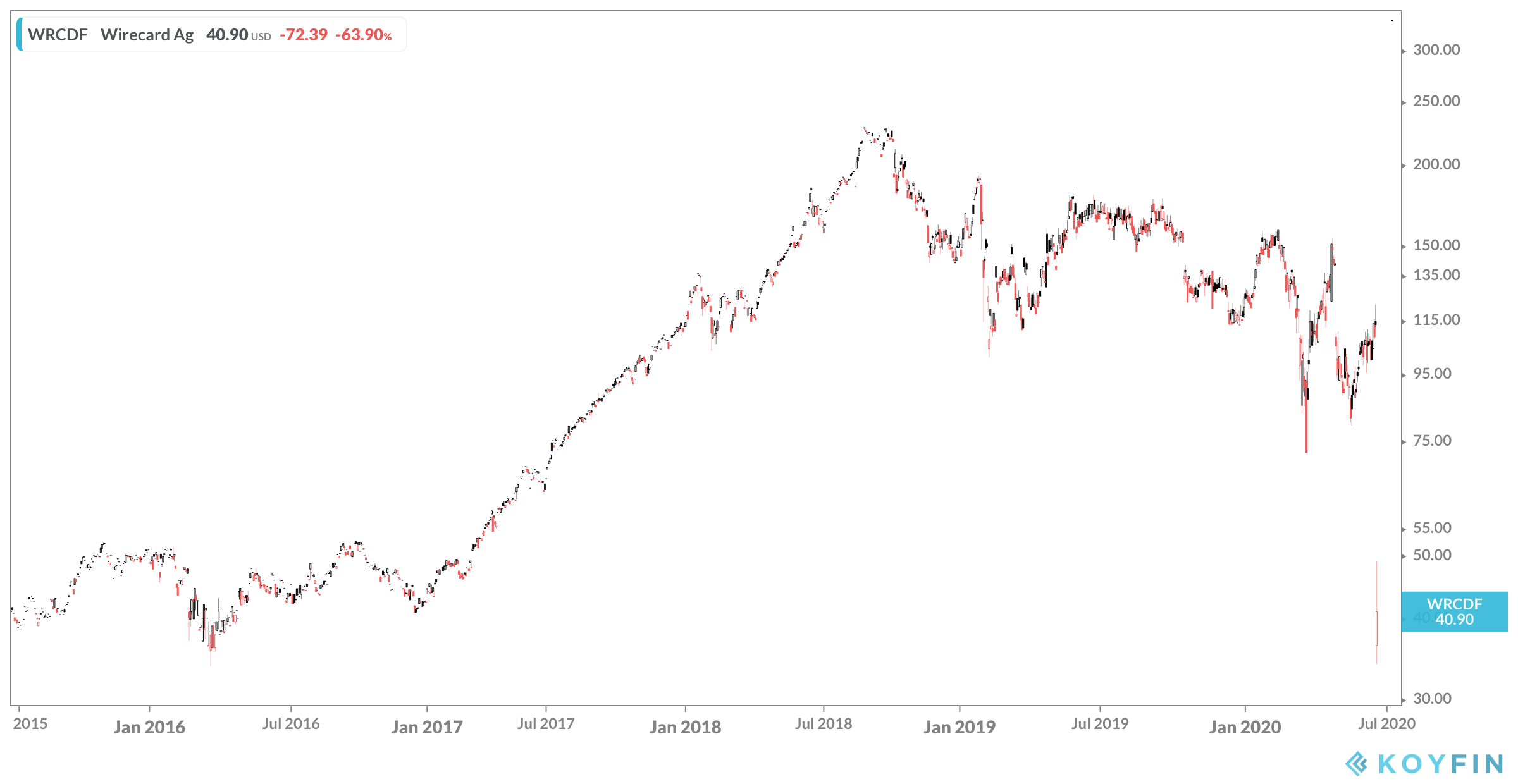Investing.com’s stocks of the week
Late in 2018, in a sign of the changing times, fintech company Wirecard replaced Commerzbank (DE:CBKG)—the German banking giant founded in 1870, in Germany's DAX, which represents the 30 largest companies trading on the Frankfurt Stock Exchange.
"Joining the DAX is just a step along the way," Wirecard CEO Markus Braun said at the time. "I believe that, in the next 10 years, our growth dynamics will put the growth of the past 10 years comfortably in the shade."
Since then, it's pretty much been downhill for Wirecard amid a series of scandals.
Just four months after joining the DAX, the Financial Times ran a story alleging a senior executive in the Asia-Pacific region at Wirecard was involved in "falsification of accounts" and "money laundering." Wirecard, which had seen critics question its financial statements as far back as 2008, called the article "false, inaccurate, misleading and defamatory," while filing a lawsuit against the Financial Times for "unethical reporting."
German regulators stepped in, banning short selling of Wirecard shares for two months, while the public prosecutor's office opened a criminal investigation into the Financial Times.
The developments were enough to cause Wirecard shares to lose nearly a third of their value in less than two weeks.
Wirecard was back in the news again this week as the company postponed its annual results and said auditors at EY cannot confirm the existence of 1.9 billion euros, or about $2.1 billion, in cash on its balance sheet. The missing balance represents roughly a quarter of Wirecard's overall cash balance.
"The Wirecard management board is working intensively together with the auditor towards a clarification of the situation," Wirecard said.
As a result, Wirecard said the delay in having auditors signing-off on the statements could mean the company will have to call 2 billion euros worth of loans early this week.
Not surprisingly, shares of Wirecard cratered more than 60% on the news to the lowest level since 2016. Shares are now down more than 80% from their 2018 highs when Wirecard was added to the DAX.

One of the big losers in Wirecard's demise is none other than Japan's Softbank (T:9984) which poured $1 billion in the company last year and continues to add to its list of poorly-timed investments.
It appears Wirecard's issues may be far from over.
